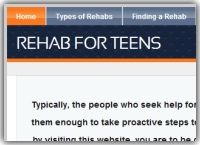 Many opioid addicted people have discovered that trying to detox off of opioids “at home” does not work and leaves them feeling miserable. There are some individuals that have “kicked the habit” without medication-assistance or a medically supervised detoxification. However, these success stories are somewhat rare, and usually pertain to people with a comparatively milder opioid addiction or an addiction of relatively shorter duration.
Many opioid addicted people have discovered that trying to detox off of opioids “at home” does not work and leaves them feeling miserable. There are some individuals that have “kicked the habit” without medication-assistance or a medically supervised detoxification. However, these success stories are somewhat rare, and usually pertain to people with a comparatively milder opioid addiction or an addiction of relatively shorter duration.
Somewhat compounding the challenge of addiction recovery are outspoken critics who wrongly assume that every drug addiction is the same, and that an addict should just pull themselves up by their bootstraps and tough it out. Individuals who hold such views are typically uneducated on the physiological characteristics of opioid addiction and the underlying brain neurochemistry that has been radically altered once opioid addiction sets in.
I have spoken to many suffering opioid addicts who have attempted home-based detoxes. The story is almost always the same: “It didn’t work. I just couldn’t make it. It was a horrible experience.” And they return to active drug use in order to cope with a myriad of sudden & protracted withdrawal symptoms, and to regain some momentary ability to function again.
Unfortunately, even some addiction professionals are poorly schooled on opioid addiction, and consequently may hold a bias against opioid replacement therapy (methadone, buprenorphine) until someone comes along to properly educate them.
Acute withdrawal from opioids results in a plethora of extremely uncomfortable physical symptoms and psychological stress that builds for days. With a home based detox, users try to self-administer decreasing amounts of opioids only to find the process overwhelming. Even a seven day detox in a medically-supervised setting using suboxone (and other medications) often leaves users with discomfort and protracted symptoms that are difficult to deal with.
In either scenario (home or hospital detox), individuals typically must deal with PAW (Post Acute Withdrawal). PAW for opioid addiction can last for months and results in lingering feelings of depression, tiredness, physical ache/pain, powerful cravings, inability to concentrate, insomnia, etc. Scientists have suggested that chronic opioid use/abuse affects the body’s metabolism and may temporarily (possibly even permanently) shut down the body’s ability to manufacture natural endorphins. This leaves the person feeling not normal. Obviously, the possibility of opioid relapse is greatly increased as a result of this post acute withdrawal process.
PAW (Post Acute Withdrawal) is greatly magnified as opioid addicts go from using daily fast-acting opiates to nothing at all. Alternatively, tapering down gradually off of methadone or suboxone introduces much less stress and allows a patient’s neurochemistry to adapt slowly to medication reduction. It also allows for much better preparation, planning, stability, and support-building as patients pursue a gradual medication taper. Tapering gradually off of an opioid replacement (methadone, suboxone) is often a much more comfortable experience than a short-term detox at home or in a hospital. Importantly, it must be said that a “social setting” or hospital-based detox is far superior to attempting a detox at home.
My final point is this. Don’t judge individuals struggling with an opioid addiction. And do not condemn them when they fail to successfully detox at home, or even in a hospital setting. Getting well, and succeeding in recovery, is a process that takes time and which may vary in procedure from one individual to the next.
We like to think that “all addicts are the same.” But, they are not. And treating them all the same is antiquated, and a failure in approach. Let’s stop to consider that medicine, science, and recovery are evolving through the years. Medication-assistance is not a cop-out or some negative compromise. It is today’s best practice approach in helping people live much improved lives. Medication-assistance is evidenced-based, and has been proven (not just theorized), but proven … to be effective.
Thanks for visiting Methadone.US, today! For more on opioid dependency, click here.
 Teen drug abuse is a persistent problem in America, and unfortunately, is on the rise again. With recent State and Federal budget cuts, funding across the country for adolescent drug treatment has dwindled. There are far fewer drug rehab facilities today than there were just 5 years ago. Locating inpatient and outpatient teen rehab programs has become a challenge for parents and adults seeking local teen drug treatment resources.
Teen drug abuse is a persistent problem in America, and unfortunately, is on the rise again. With recent State and Federal budget cuts, funding across the country for adolescent drug treatment has dwindled. There are far fewer drug rehab facilities today than there were just 5 years ago. Locating inpatient and outpatient teen rehab programs has become a challenge for parents and adults seeking local teen drug treatment resources.
 Follow
Follow

 It has been said in the treatment and recovery community that addiction is a disease of feelings. What is specifically meant by this is that addicted individuals typically have difficulty coping with emotions and are often triggered by them to use drugs in the traditional chemical coping paradigm.
It has been said in the treatment and recovery community that addiction is a disease of feelings. What is specifically meant by this is that addicted individuals typically have difficulty coping with emotions and are often triggered by them to use drugs in the traditional chemical coping paradigm. Many opioid addicted people have discovered that trying to detox off of opioids “at home” does not work and leaves them feeling miserable. There are some individuals that have “kicked the habit” without medication-assistance or a medically supervised detoxification. However, these success stories are somewhat rare, and usually pertain to people with a comparatively milder opioid addiction or an addiction of relatively shorter duration.
Many opioid addicted people have discovered that trying to detox off of opioids “at home” does not work and leaves them feeling miserable. There are some individuals that have “kicked the habit” without medication-assistance or a medically supervised detoxification. However, these success stories are somewhat rare, and usually pertain to people with a comparatively milder opioid addiction or an addiction of relatively shorter duration. The two primary components of opioid addiction treatment are opioid replacement therapy (methadone or suboxone) and behavioral health counseling. Each of these therapeutic interventions address very different aspects of one’s addiction. And one intervention, without the other, is generally not sufficient to promote lasting recovery from opioid addiction. Both must work in unison to produce meaningful, lasting change.
The two primary components of opioid addiction treatment are opioid replacement therapy (methadone or suboxone) and behavioral health counseling. Each of these therapeutic interventions address very different aspects of one’s addiction. And one intervention, without the other, is generally not sufficient to promote lasting recovery from opioid addiction. Both must work in unison to produce meaningful, lasting change.


